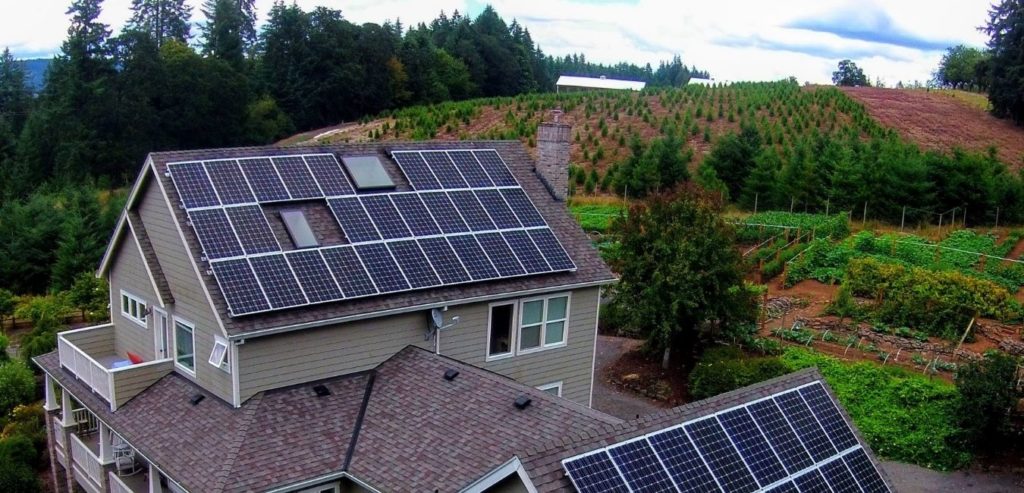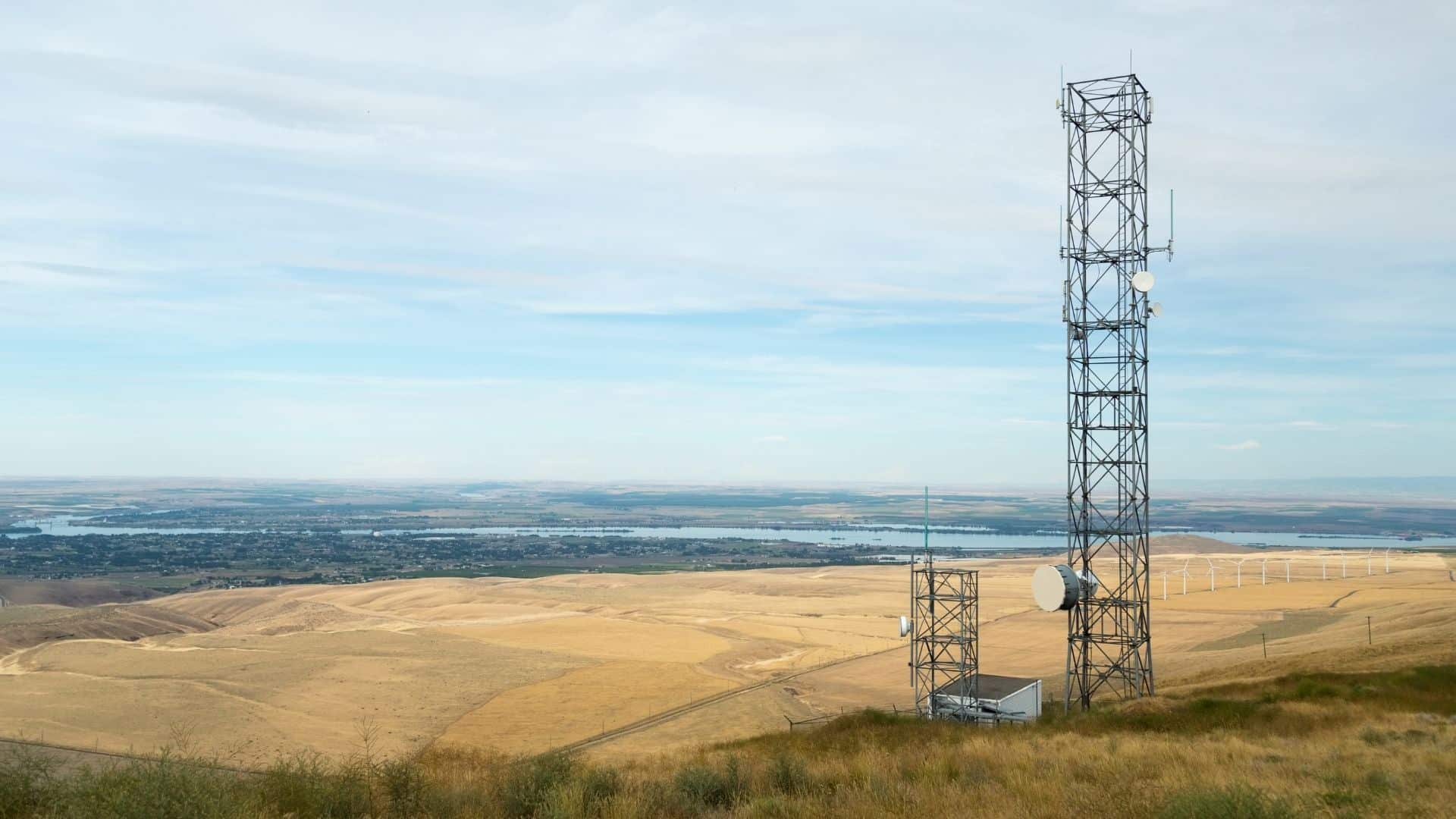Solar in Richland, WA
Deciding to change to solar energy can be daunting. Especially in a place like Richland, Washington. With sunshine amounts varying from as much as 12 hours in the summer to a mere five hours in the winter, it’s difficult to know if solar is worth it in the end.
The answer isn’t always “yes” for everyone. But we can tell you that Richland is an excellent state for switching to solar energy. With Washington state’s generous solar incentives and Richland’s sunny, arid climate, you might be surprised how much this investment will save you in the long run.
Before deciding whether installing solar panels in Richland, Washington is right for you, let’s first go over some factors. Such as sun exposure, cost, tax incentives, and benefits.
Questions to Ask Yourself
Installing a solar energy system can be a costly venture. Solar panels can cost thousands of dollars and take time to install. If or when you decide to shift to solar energy, you want to be sure that it’s the best decision for you.
Here are some helpful pointers to help you make the best choice for your home or business. And it will help you truly answer the question if solar panels do work in Richland.
How Much Sunlight Does Your House Get?
The amount of sunlight your house gets is a significant factor in determining whether a solar energy system would benefit you.
Richland’s arid climate means that there are few high-reaching trees. The combination of a primarily shrubby environment and sunny summer weather creates high sun exposure. Particularly during the long summer days.
This combination makes it an excellent location for installing solar panels.
Typically, roofs that face south or west receive the most sunlight. Check to see if there are any trees or neighboring buildings that obstruct your roof from sunshine. It may be helpful to check an irradiance map to gauge how the sun strikes your house. That way you don’t waste time in deciding where and when to install solar panels.
High sun exposure is essential to your return on investment (ROI). Shaded roofs will produce less solar energy. Even if they are only shaded for part of the day. And it may take longer to recoup the cost invested in installation. So you should see where the solar panels could be installed on your roof, and if the shade will be an issue.
The best way to determine whether your home or business is suitable for solar is to call a professional. You may call us at 360-313-7190 or request us to call you on our website.
Is It Worth It to Clear Trees?
If there is a tree that reduces solar access to your roof, it may be a good idea to consider removing it. But first, weigh any benefits that the tree provides for your household.
If the tree provides shade in the summer–thus reducing your electricity bill–or privacy, you may be hesitant to cut it down. Request an on-site evaluation with us at Sunbridge Solar. We can provide quotes for scenarios of keeping or removing the tree for you to compare.
How Much Surface Space Do You Have?
Another key factor to consider is the amount of surface space available for solar panel installation. Solar panels need large, unobstructed areas without interference from vents, skylights, and chimneys.
How High Is Your Energy Bill?
The final essential factor to consider is how much energy your household or business consumes. If you are unsure of the number, simply check your home or business’s most recent energy bill.
A home or business that uses over 500 kilowatt-hours (kWh) of energy per month is a good candidate that may benefit from solar.

What Is the Average Cost of Solar in Richland, WA?
Richland, Washington’s typical solar panel price as of March 2024 is $3.18/W. A typical solar installation in Richland, Washington costs between $13,515 and $18,285, with the average gross price for solar in Richland, WA coming in at $15,900 for a solar panel system with a capacity of 5 kW. The net cost of going solar can decrease by thousands of dollars once the 30% federal investment tax credit (ITC) and other state and local solar incentives are taken into account.
To encourage more homes and businesses to turn toward green energy, both state and federal governments in the United States offer major tax credits and incentives. These incentives can cause the price to become a little more manageable upfront.
Is Solar Worth It After Solar Incentives Are Applied?
Are the incentives worth it? We think so!
The federal government offers a generous 30% Federal Investment Tax Credit (ITC) to both businesses and residential customers who turn to solar.
On top of this federally sponsored incentive, Washington State offers incentives for citizens, such as:
- Sales tax exemption for solar installations
- MACRS for commercial use of solar
- USDA REAP Grant for commercial use of solar
- WA Net Energy Metering (NEM)
- View All WA Solar Incentives and Rebates
What is Net Energy Metering?
Washington is an excellent place for solar power because of the state’s net metering plan. While your solar panels work hard during the day, you might wonder how they will benefit you when the sun sets. This is particularly concerning in Washington where winter days are short!
Luckily, the state government offers credit for excess power generated by your solar panels. For every kWh in excess your solar panels produce, you receive credits that will roll over to and reduce your utility bill in the winter months.
While some states only offer partial credit per excess kWh produced, Washington state matches your excess one-to-one. All that is left to pay are any utilities that exceed this credit that your solar panels have earned.
This significantly reduces your utility bill and helps tide over your household or business throughout the year.
Read more about NEM and Washington state-specific incentives.
Is Solar Worth It to Finance?
Now that you know how much solar installation costs and some incentives, the next logical question is: when will you start to see the financial benefits of solar energy?
In other words, how long will it take before your solar panels “pay for themselves”?
The average amount of time it takes for the cost of solar panels to break even and show financial benefit is between eight and 15 years. The following can influence the duration of your payback period:
- Your energy usage needs
- Cost of your particular system
- Value of various financial incentives
- Interest on loans if used to purchase your solar system
To estimate your solar payback period, follow these steps:
- Calculate the gross cost of your solar panel system.
- Subtract all qualifying federal and state incentives.
- Add up the annual financial benefit of your solar system, e.g. how much you avoid annually in your electric bill.
- Divide your combined cost by your financial benefits.
The resulting number will be the estimated number of years after which you will begin seeing major benefits from your solar energy system.
While leasing solar panels is an option, owning your solar panels is the best way to benefit most. You receive all of the savings that your solar panels generate without having to split them with leading solar companies.
What Is the Outlook on Solar Energy in Washington?
According to the Office of Energy Efficiency and Renewable Energy, by 2035, as much as 40% of the United States’ electricity supply could come from solar energy. With the state of Washington’s progressive policies and attractive incentives, the state may supersede the national average.
With solar energy becoming more affordable and showing real benefits, we think it’s safe to say the future for solar is bright!
What Are the Benefits Of Solar Energy?
There are many major benefits of switching to solar energy, including:
- Saving on electricity bills
- Increased independence from fluctuating electricity rates
- Lower taxes due to state and federal tax credit, property tax exemption, and sales tax exemption
- Increased home resale value by approximately 4.1%
- Reduced carbon footprint: solar energy is clean energy that is 96% less carbon-intensive than coal and 93% less carbon-intensive than natural gas
So, Is Solar Worth It in Richland?
We strongly believe it is! The choice is ultimately yours. With Washington State’s attractive solar incentives and Richland’s long summer days, a future free from rising electricity costs is possible.
Considering joining them? Contact us for a free consultation and roof analysis for your home or business. We will make sure to provide you with all of the information you need to make the decision that benefits you most.
You may also try out our online solar calculator before speaking with us.


